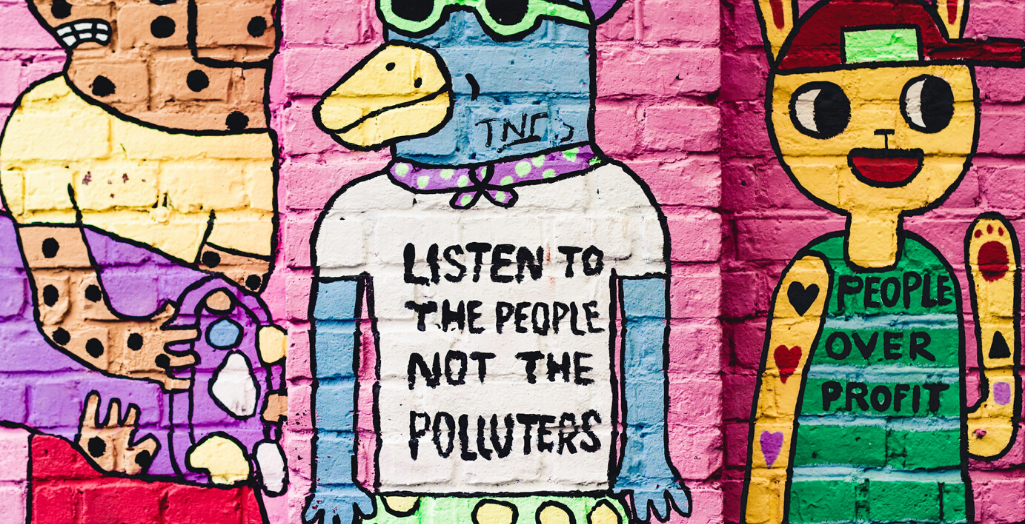Sustainability more important than style? The numbers say yes.
Consumers are starting to become more hyper-aware of the impact that fashion has on the environment. Read on to learn more about being a sustainable brand.

Consumers are starting to become more hyper-aware of the impact that fashion has on the environment and there is an increasing demand for transparency into how clothes are made. What's more, the numbers are starting to paint a not so pretty picture of just how detrimental the business of fashion has been to our climate.
As it stands, the clothing industry is one of the largest polluters in the world. And now, all eyes are starting to look towards fast fashion brands who are churning out clothing meant to be disposable. Most clothing uses synthetic fibers that are made from fossil fuel, which makes production more energy-intensive and renders clothing non-biodegradable adding exponentially to landfill waste.
Apparel manufacturing accounts for 10% of global carbon emissions beating out aviation and shipping combined. While most eco-conscious brands and retailers are starting to pay attention, the fashion industry still has a long way to go.
What does sustainability mean?
There are significant areas in which brands can start to mindfully change the way they
manufacture and distribute clothes. But for the most part, the issues facing the clothing industry boil down to creating a more sustainable model of making clothes starting from the textiles that are used down to how clothing factories operate.
Key areas of negative impact:
Pollution and greenhouse emissions: The industry is responsible for 1,715 million tons of CO2 emissions. In most cases, clothing is produced in countries that still rely heavily on coal, which creates the most toxic emissions. 23 Kilogram of greenhouses gasses are generated for each kilo of fabric produced.
Water consumption: 20,000 liters of water are needed to produce just 1kg of cotton, which has dramatic effects in countries that are already resource depleted. Similarly, the same major countries that are producing clothes are dumping toxic waste used to treat garments into rivers.
Waste accumulation: The average lifetime of a garment is currently 3 years and only 15% of that clothing is recycled or donated with the rest going to landfills. What's more, over 70% of fibers are non-biodegradable, which means that once they are in landfills, they will remain there.
Environmental destruction: The use of toxic chemicals in dyeing and treating fibers, as well as in cotton farming is leading to premature deaths among cotton farmers. What's more, the toxic chemicals then contribute to soil degradation and get dumped into the ocean. Currently, the fashion industry accounts for 23% of all chemicals produced worldwide.
While the problems facing the fashion industry seem daunting to overcome, many brands and
retailers are starting to make changes in the right direction.
Brands who are moving in the right direction
Surprisingly, it's the newer brands that have had an upper hand in changing the industry. With major retailers and brands having to recalibrate longstanding processes that greatly add to the degradation of our climate, younger brands are coming in with a plan for transparency and sustainability from the jump.
Asket, a new eco-conscious fashion label is leading the pack in sustainability by repurposing unused fabric or vintage clothes rather than using new textiles. They are also forgoing seasonal releases, essentially discouraging the mass consumerism that most brands seem to want to promote.
Asket is also concerned with the major brands who throw around the word "sustainability" as a marketing ploy rather than try to make systemic changes that can greatly aid the fight against climate change. And luckily, they aren't alone, Gucci's CEO, Marco Bizzari, has started a Carbon Neutral Challenge to top
executives in other leading brands asking for more immediate changes into the way they operate that includes using the aid of technology in the supply chain that will help redefine corporate carbon neutrality.
Bizzari is proposing that brands use a third-party auditor who can help configure the number of emissions a company generates bringing more accountability and transparency to a much-needed area of business. Gucci hopes to bring a little friendly competition among other fashion labels and exponentially move the fight towards more eco-conscious practices in the right direction.
A promising future
With so many brands and retailers committing to change--, there is an air of hope in regards to the future of fashion, and NuORDER is in support of helping companies move in the direction of eliminating their massive carbon prints.
Through the NuORDER platform, brands and retailers can eliminate their paper trail by using our digital tools to more intelligently do wholesale and continue to fight for a better planet.
Get on the list
Wholesale tips and industry news you can’t miss, delivered weekly
